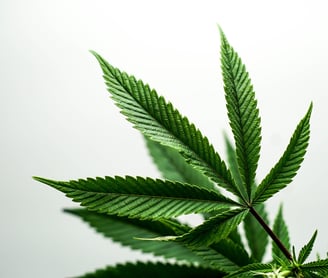How Is Hemp Federally Legal?
4/15/20232 min read
The Agricultural Improvement Act of 2018, also known as the Farm Bill, is a federal law that was signed into law in December 2018. The Farm Bill is a sweeping piece of legislation that addresses a wide range of agricultural and rural development issues, including the legalization of hemp and alternative cannabinoids. In this article, we'll explore what the Farm Bill is and how it legalized hemp flower and alternative cannabinoids.
What is the Farm Bill?
The Farm Bill is a large and complex piece of legislation that sets federal policy for a variety of agricultural and rural development programs. It is typically passed every five years and is one of the most significant pieces of legislation for the agriculture industry in the United States. The most recent Farm Bill, which was signed into law in December 2018, contains several important provisions related to hemp and alternative cannabinoids.
Hemp legalization
One of the most significant provisions of the 2018 Farm Bill was the legalization of hemp at the federal level. Under the previous law, hemp was classified as a Schedule I controlled substance, along with marijuana. The Farm Bill removed hemp from the list of controlled substances and defined it as any part of the cannabis plant that contains less than 0.3% Delta 9 THC. This change opened up a new market for hemp products, including hemp flower and alternative cannabinoids.
Alternative cannabinoids
Another important provision of the Farm Bill was the legalization of alternative cannabinoids, such as CBD and Delta 8 THC. Under the previous law, these cannabinoids were considered controlled substances, even if they were derived from hemp. The Farm Bill removed these cannabinoids from the list of controlled substances, as long as they were derived from hemp and contained less than 0.3% Delta 9 THC. This change allowed for the production and sale of a wide range of hemp-derived products, including CBD oil, Delta 8 THC products, and other alternative cannabinoids.
Impact
The Farm Bill has had a significant impact on the hemp industry in the United States. It has opened up new opportunities for farmers, processors, and manufacturers, and has led to the creation of a wide range of new products. It has also led to increased interest in the potential health benefits of hemp and alternative cannabinoids, and has spurred research into their potential therapeutic uses. However, the Farm Bill has also raised some concerns about the safety and quality of hemp-derived products, and there is still a great deal of uncertainty about how these products will be regulated in the future.
In conclusion, the Farm Bill is a federal law that legalized hemp and alternative cannabinoids, such as CBD and Delta 8 THC, at the federal level. This change has opened up new opportunities for the hemp industry and has led to the creation of a wide range of new products. However, there are still many questions and concerns about the safety and regulation of these products, and it will take time for the industry to fully develop and mature.





